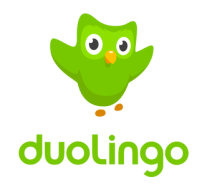I first started trying to learn French when I planned to moved to Geneva to work at CERN for my PhD. I took a few lessons and downloaded a podcast, but when I actually arrived, and was surrounded by Brits, or English speaking colleagues, I quickly found that other tasks took higher priority and I didn’t get any further than ordering food at a restaurant.
 However, when I accepted a post-doc in Paris, I knew things would be different. Officially the work was in English since I would still be working with the same international researchers at CERN that I was before. But this time I was moving out on my own, so I wasn’t going to have a large British group of friends, and I had been warned that many of the engineers and support staff that I would be working with either didn’t speak English, or strongly preferred speaking French. Not to mention all of the daily life tasks I would have to face, such as finding an apartment. This was OK. In fact, it was one of the reasons looked outside of the UK for my first post-doc; I was tired of being the only monolingual in a crowd of bi-, tri- and even poly-linguals! I had to learn at least one language and moving somewhere I was going to be forced to speak it was the only way it was going to happen.
However, when I accepted a post-doc in Paris, I knew things would be different. Officially the work was in English since I would still be working with the same international researchers at CERN that I was before. But this time I was moving out on my own, so I wasn’t going to have a large British group of friends, and I had been warned that many of the engineers and support staff that I would be working with either didn’t speak English, or strongly preferred speaking French. Not to mention all of the daily life tasks I would have to face, such as finding an apartment. This was OK. In fact, it was one of the reasons looked outside of the UK for my first post-doc; I was tired of being the only monolingual in a crowd of bi-, tri- and even poly-linguals! I had to learn at least one language and moving somewhere I was going to be forced to speak it was the only way it was going to happen.
And so I moved. And it was tough! I went to coffee breaks with my colleagues and I had no idea what they were talking about. I learnt to laugh at jokes I didn’t understand — this was *not* a good idea, but I think it was a reflex of wanting to fit in and be part of the group. My colleagues were great and would speak to me directly in English, but when a group formed, French was the natural language for discussion. I was well supported in setting myself up (getting a bank account and my social security number would have been a lot more hassle without the guidance I received from the people at work), but I wasn’t able to join a French class through work straight away and so I had to get disciplined and do some private study. The following were the most useful tools I found at the beginning and I want to share them incase anyone else is looking for ways to learn French at home.
This was the podcast I had downloaded before. I really enjoyed listening to it and I loved the dynamic between Mark, ‘le professor’, and Katie who was the learner. The podcast is recorded in Glasgow, Scotland, so not only do you get to learn French, you can also pick up a Scottish accent at the same time. I would definitely recommend this podcast for any beginner and, if you’re an intermediate, check out the later series.
Duolingo is a free online language learning programme, which was very useful for learning new words and how to build sentences in French. The programme rewards passing each level with points and so it reminded me of apps like Farmville. In these games you connect with friends also “playing” and compete with them for points, but at the end with Duolingo, you have learnt a language instead of farmed virtual vegetables. My only criticism is that you don’t really have structured sections just for learning, but you learn through each of the tests in the lessons by hovering over words to see what they mean. You can download the app on your phone or tablet, or use it through the computer.
This is a fantastic podcast if you’ve only got five minutes, but it requires you to be a little more advanced. Louis, the host, reads out a recent headline in French and then explains each of the words in other contexts to allow you to develop a better understanding. This is less about translating and more about learning French words in context. I don’t usually get a chance to listen every day, so I save them up and then listen to a bunch on the train home one evening.
Netflix:
Isn’t it great when something you’d like to be doing anyway is actually work? Since Netflix became available in France I’ve been using it to work on my French by watching shows I’ve already seen with French dubbing and subtitles. It helps that I don’t have to worry about following the whole story and instead I can concentrate on the language. I’ve learnt some very useful French this way. For example, with “Buffy Contre les Vampires” I now know the word for werewolf – invaluable!
And finally, here’s a quirky thing about Google Translate that I recently discovered. I was getting frustrated that whenever I wanted to check a translation from English to French, it only gave me results in formal french for ‘you’ and ‘your’. I often wanted to check messages I was writing to people I knew well enough to use the informal, or tutoyer, with so it wasn’t very useful for that. Eventually, I googled it and came across this blog post. Essentially it explains that if you use ‘thee’ and ‘thou’, which are old English informal words, Google will translate it correctly for you!
Now the best way for me to improve my French is just to try to speak it as much as possible! If you have any tips you’d like to share about learning a new language, please add it in the comments below!
Edit: Updated 13/03/15 to include Duolingo.



